Interventions (47 page)
Authors: Kofi Annan
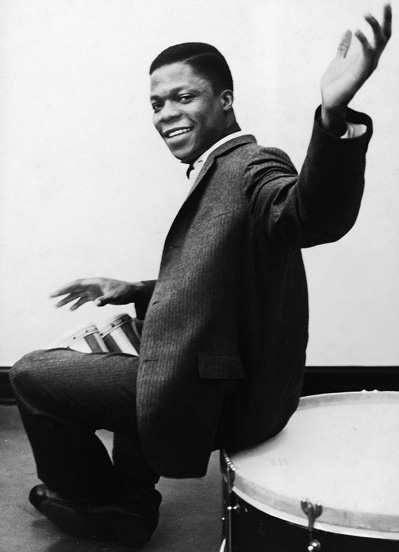
On the drums while a student in the United States, 1960.
Courtesy of the author
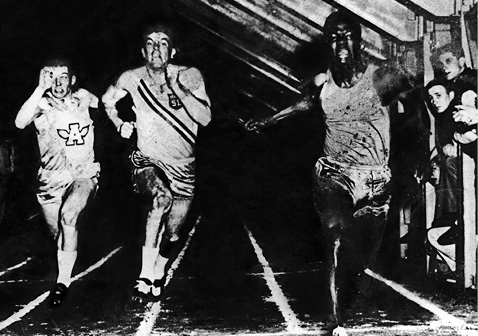
Setting the record for the 60-yard sprint at Macalester College.
Macalester College Archives, DeWitt Wallace Library
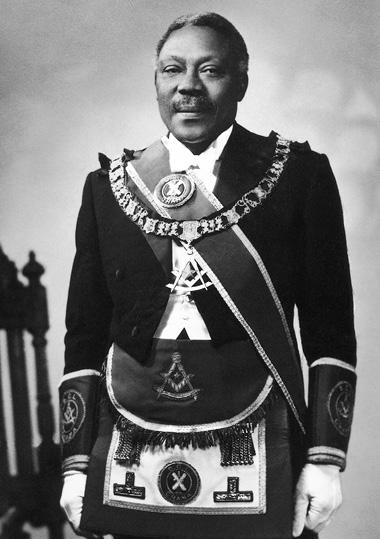
My father, Henry Reginald (H.R.) Annan, in Freemason's regalia. To him, there was no contradiction in being African in identity and European in outlook.
Courtesy of the author
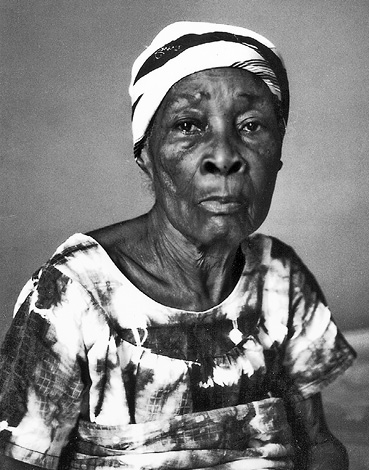
My mother, Rose Eshun.
Courtesy of the author
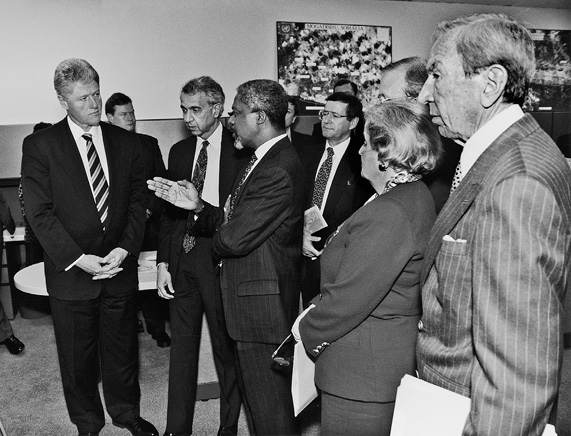
Briefing President Bill Clinton, Ambassador Madeleine Albright, and Secretary of State Warren Christopher on current peacekeeping operations in the UN situation room. My deputy Iqbal Riza is at Clinton's left. When I took over the UN Department of Peacekeeping Operations in 1993, UN peacekeeping was undergoing enormous changes. Peacekeepers were being sent into dangerous and unstable territories torn by civil war often with limited means and mandates.
Courtesy of the author, photographer unknown
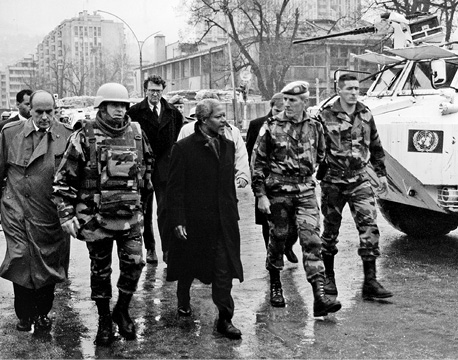
Walking through the streets of Sarajevo with UN peacekeeping officers, 1995. The war in Bosnia was one of the most drawn-out and destructive conflicts for UN peacekeeping in the early 1990s. As secretary-general, I made it a priority that we drew the right lessons from that experience.
Courtesy of the author, photo by P. W. Ball
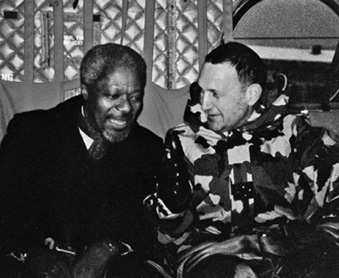
With General Janvier, commander of the UN Protection Force in Croatia and Bosnia Herzegovina, flying from Zagreb to Sarajevo before handing over mission responsibility to NATO, in December 1995.
Courtesy of the author, photographer unknown
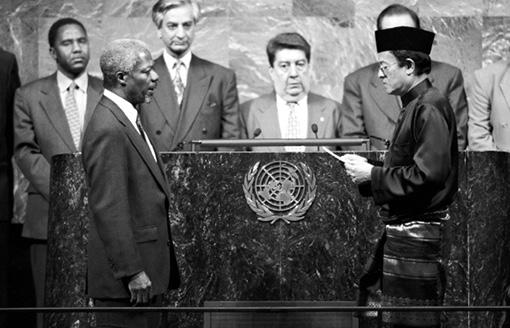
Being sworn in as the seventh secretary-general of the United Nations, December 17, 1996, by the president of the General Assembly, Ambassador Razali Ismail of Malaysia.
UN Photo/Evan Schneider © United Nations
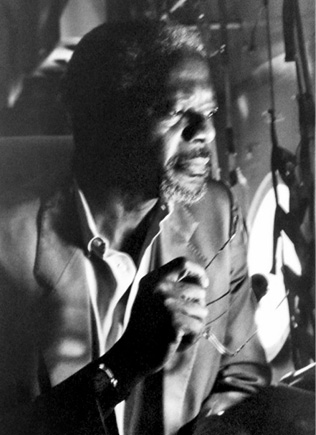
On a plane above Angola, March 1997. My first international trip as secretary-general was a tour of Africa. As the first sub-Saharan African to lead the UN, putting the continent's enormous challenges at the top of the international community's agenda was a priority throughout my tenure. Shortly after this first visit, I returned again in June, this time with a tougher message for Africa's leaders: to demand their collective rejection of leaders who came to power through military coups.
UN Photo/Milton Grant
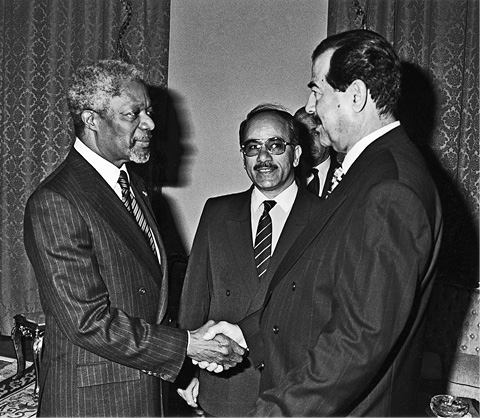
In February 1998, I traveled to Baghdad to meet with Saddam Hussein in an attempt to avert another war in Iraq over its weapons of mass destruction program. The negotiations were initially successful, with Iraq agreeing to allow weapons inspectors into palaces and other “Presidential sites.”
Iraqi News/United Nations
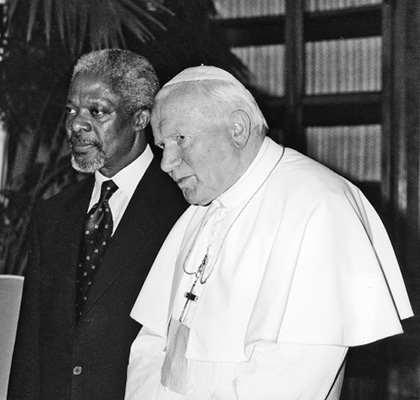
With Pope John Paul II, a leading global voice of concern for the poor and a tireless advocate of peaceful resolutions of disputes. I believed the United Nations had to be a United Nations of
peoples
, not just of member states. I worked to open the United Nations' doors to other global organizations, including world religions and other prominent players in international civil society as another instrument for influencing the international agenda on global issues, from tackling wars and disease to promoting development and human rights. ©
Photographic Service L'Osservatore Romano